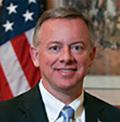
Running for office statewide in Florida is a daunting task. The state is 361 miles wide and 447 miles long and is in two time zones. Florida has 67 counties, 282 cities, 119 towns and 19 villages. In short, Florida is big and campaigning in the entire state is hard work.
However, if you win a statewide election, the real work begins the day after the election. The morning after I was elected lieutenant governor in 2006, Governor-elect Crist and I held a press conference to announce our transition team. For the next six weeks we spent nearly every waking hour in Tallahassee preparing for our term in office.
There is so much to be done during transition. First, you have to select a quality group of people to help do the work -- and we did that by picking people like Roberto Martinez, Dean Colson and Kathleen Shanahan to lead the effort. The transition is enormously complex. During those brief six weeks you have to appoint hundreds of people to key positions, develop your legislative agenda and budget for the upcoming session, get up to speed on all current state activities, and also prepare for the inauguration.
During transition the days start very early and end very late. Lunch and dinner were always ordered in so we could continue working. Organization is critical because there are literally hundreds of decisions that need to be made in a very short period of time. After work each day there were still hours of work to do reading the huge, three-ring binders prepared by our capable staff to get ready for the next day.
When it comes to appointments, you must sort through thousands of resumes and personally interview all of the top candidates to lead state agencies. The interviews take hours each day -- but they are the most important part of the appointment process. Everyone you interview is impressive on paper. Most are even more impressive in person. It is during the interview that you determine which candidates are leaders that share your vision of how to serve the citizens.
It was very rare for us to leave the transition office during the day. We did at least once -- to spend the day at the Emergency Operations Center where we were briefed for more than three hours by Director Craig Fugate and General Doug Burnette. I was very blessed to have dedicated and hard-working people help me during transition, including Monesia Brown, Melanie DiMuzzio, and Jessie Manzano.
Transition also includes a comprehensive review of virtually every activity of government. We appointed groups of citizens from all over the state to review every state agency and to provide a comprehensive list of recommendations for each agency. We personally met with every citizens review committee. The meetings were lengthy (usually lasting for hours) -- but it was worth it. At the end, we not only had an in-depth understanding of each agency, we had a list of action items we could implement as soon as we took office.
As I follow the actions of President-Elect Trump’s transition team, I can see many similarities to our efforts in Florida in 2006 (of course the work of Trump’s transition is on a much larger scale). The time you spend shifting from the campaign to preparing to govern is exciting -- and very, very important. The success of a president, and even a governor, is often based on how well they operate the government in the first 100 days in office. The work you do during transition -- to appoint qualified and quality people to important positions; to develop a strong legislative agenda; and in every way possible prepare to hit the ground running -- can make the difference between success and failure for the next four years.
Jeff Kottkamp is president of Jeff Kottkamp, PA. He served as Florida’s 17th lieutenant governor and was acting governor of Florida on June 18, 2008.


